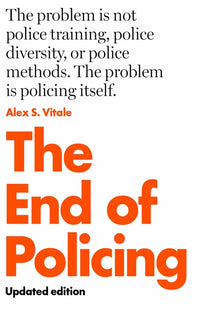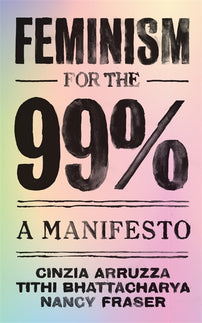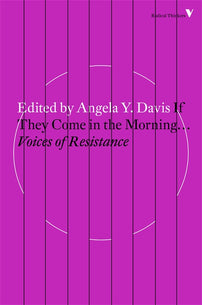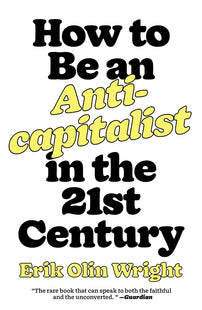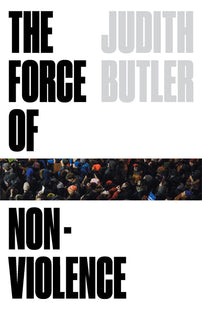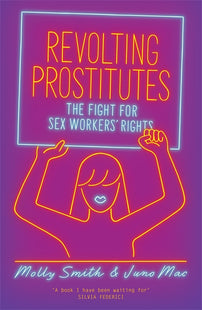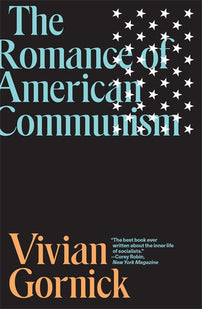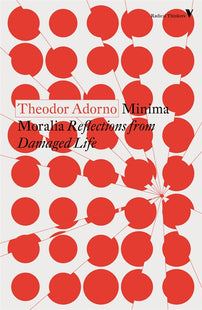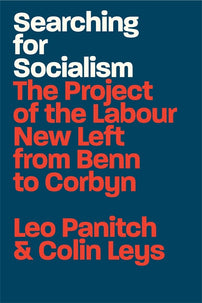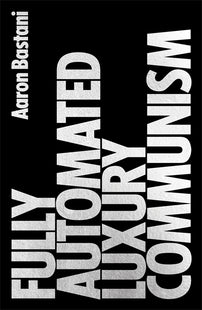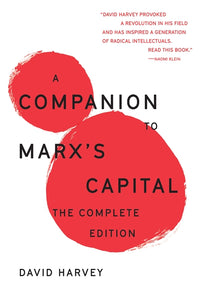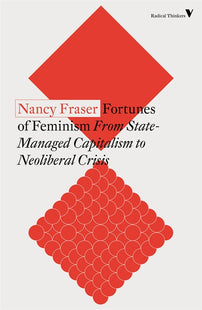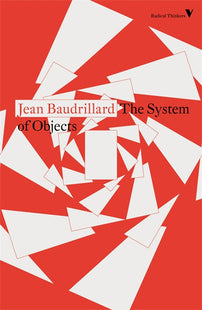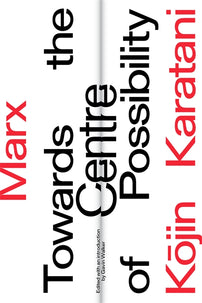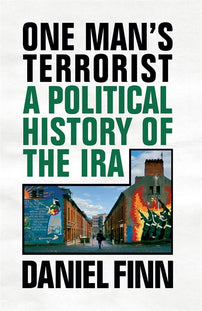Bestsellers of 2020
The bestselling books of 2020, including Vivian Gornick, Adorno, Angela Davis, Mike Davis, and Judith Butler.

Here are our bestselling titles from the year so far including Alex Vitale on police abolition, Judith Butler on the philosophy of nonviolence, Juno Mac and Molly Smith on sex workers' rights, and McKenzie Wark on class politics and technology.
For our 50th anniversary we have 50% off all our Book Club memberships and 40% off ALL BOOKS! If you do sign up for our book club then you will get 50% off everything on our site for as long as you are a member.
Drawing on groundbreaking research from across the world, and covering virtually every area in the increasingly broad range of police work, Alex Vitale demonstrates how law enforcement has come to exacerbate the very problems it is supposed to solve.
[book-strip index="2" style="buy"]Unaffordable housing, poverty wages, inadequate healthcare, border policing, climate change—these are not what you ordinarily hear feminists talking about. But aren’t they the biggest issues for the vast majority of women around the globe?
[book-strip index="3" style="buy"]Since the book was written, the carceral system in the US has seen unprecedented growth, with more of America’s black population behind bars than ever before. The scathing analysis of the role of prison and the policing of black populations offered by Davis and her comrades in this astonishing volume remains as pertinent today as the day it was first published.
[book-strip index="4" style="buy"]Erik Olin Wright has distilled decades of work into this concise and tightly argued manifesto: analyzing the varieties of anticapitalism, assessing different strategic approaches, and laying the foundations for a society dedicated to human flourishing. How to Be an Anticapitalist in the Twenty-First Century is an urgent and powerful argument for socialism, and an unparalleled guide to help us get there.
[book-strip index="5" style="buy"]Considering nonviolence as an ethical problem within a political philosophy requires a critique of individualism as well as an understanding of the psychosocial dimensions of violence. Butler draws upon Foucault, Fanon, Freud, and Benjamin to consider how the interdiction against violence fails to include lives regarded as ungrievable.
[book-strip index="6" style="buy"]In Revolting Prostitutes, sex workers Juno Mac and Molly Smith bring a fresh perspective to questions that have long been contentious. Speaking from a growing global sex worker rights movement, and situating their argument firmly within wider questions of migration, work, feminism, and resistance to white supremacy, they make clear that anyone committed to working towards justice and freedom should be in support of the sex worker rights movement.
[book-strip index="7" style="buy"]Now back in print after its initial publication in 1977 and with a new introduction by the author, The Romance of American Communism is a landmark work of new journalism, profiling American Communist Party members and fellow travelers as they joined the Party, lived within its orbit, and left in disillusionment and disappointment as Stalin’s crimes became public.
[book-strip index="8" style="buy"]Written between 1944 and 1947, Minima Moralia is a collection of rich, lucid aphorisms and essays about life in modern capitalist society. Adorno casts his penetrating eye across society in mid-century America and finds a life deformed by capitalism. This is Adorno's theoretical and literary masterpiece and a classic of twentieth-century thought.
[book-strip index="9" style="buy"]Mike Davis and Jon Wiener provide the first comprehensive movement history of L.A. in the sixties, drawing on extensive archival research and dozens of interviews with principal figures, as well as the authors’ storied personal histories as activists. Following on from Davis’s awardwinning L.A. history, City of Quartz, Set the Night on Fire is a historical tour de force, delivered in scintillating and fiercely beautiful prose.
[book-strip index="10" style="buy"]Priyamvada Gopal examines a century of dissent on the question of empire and shows how British critics of empire were influenced by rebellions and resistance in the colonies, from the West Indies and East Africa to Egypt and India. In addition, a pivotal role in fomenting resistance was played by anticolonial campaigners based in London, right at the heart of empire.
[book-strip index="11" style="buy"]In this landmark collection spanning three centuries and four waves of feminist activism and writing, Burn It Down! is a testament to what is possible when women are driven to the edge. The manifesto—raging and wanting, quarreling and provoking—has always played a central role in feminism, and it’s the angry, brash feminism we need now.
[book-strip index="12" style="buy"]In Bigger than Bernie, activist writers Meagan Day and Micah Uetricht give us an intimate map of this emerging movement to remake American politics top to bottom, profiling the grassroots organizers who are building something bigger, and more ambitious, than the career of any one candidate. As participants themselves, Day and Uetricht provide a serious analysis of the prospects for long-term change, offering a strategy for making “political revolution” more than just a campaign slogan.
[book-strip index="13" style="buy"]In this radical and visionary new book, McKenzie Wark argues that information has empowered a new kind of ruling class. Through the ownership and control of information, this emergent class dominates not only labour but capital as traditionally understood as well.
[book-strip index="14" style="buy"]Females is Andrea Long Chu’s genre-defying investigation into sex and lies, desperate artists and reckless politics, the smothering embrace of gender and the punishing force of desire.
[book-strip index="15" style="buy"]In The Origin of Capitalism, a now-classic work of history, Ellen Meiksins Wood offers readers a clear and accessible introduction to the theories and debates concerning the birth of capitalism, imperialism, and the modern nation state.
[book-strip index="16" style="buy"]Dean offers a theory of the comrade. Comrades are equals on the same side of a political struggle. Voluntarily coming together in the struggle for justice, their relationship is characterized by discipline, joy, courage, and enthusiasm.
[book-strip index="17" style="buy"]Jeremy Corbyn’s rapid ascent to the leadership of the Labour Party, driven by a groundswell of popular support particularly among the young, was met at the time by a baffled media. Just where did Jeremy Corbyn come from? In Searching for Socialism, Leo Panitch and Colin Leys argue that it is only by understanding Corbyn's roots in the Bennite Labour New Left’s long struggle to transcend the limits of ‘parliamentary socialism’ and democratise the party, as a precondition for democratising the state, can you understand his surge to become leader of the party.
[book-strip index="18" style="buy"]In Fully Automated Luxury Communism, Aaron Bastani conjures a vision of extraordinary hope, showing how we move to energy abundance, feed a world of 9 billion, overcome work, transcend the limits of biology, and establish meaningful freedom for everyone. Rather than a final destination, such a society merely heralds the real beginning of history.
[book-strip index="19" style="buy"]For nearly forty years, David Harvey has written and lectured on Capital, becoming one of the world’s foremost Marx scholars. Based on his recent lectures, this current volume—finally bringing together his guides to volumes I, II and much of III—presents this depth of learning to a broader audience, guiding first-time readers through a fascinating and deeply rewarding text.
[book-strip index="20" style="buy"]On Ideology charts Althusser’s critique of the theoretical system unveiled in his own major works, and his developing practice of philosophy as a “revolutionary weapon.”
[book-strip index="21" style="buy"]Second Wave feminism emerged as a struggle for women’s liberation and took its place alongside other radical movements. But feminism’s subsequent immersion in identity politics coincided with a decline in its utopian energies and the rise of neoliberalism. Now, foreseeing a revival in the movement, Fraser argues for a reinvigorated feminist radicalism able to address the global economic crisis.
[book-strip index="22" style="buy"]The System of Objects is a tour de force—a theoretical letter-in-a-bottle tossed into the ocean in 1968, which brilliantly communicates to us all the live ideas of the day—offering a cultural critique of the commodity in consumer society.
[book-strip index="23" style="buy"]Originally published in 1974, Kojin Karatani’s Marx: Towards the Centre of Possibility has been among his most enduring and pioneering works in critical theory. Written at a time when the political sequences of the New Left had collapsed into crisis and violence, with widespread political exhaustion for the competing sectarian visions of Marxism from 1968, Karatani’s Marx laid the groundwork for a new reading, unfamiliar to the existing Marxist discourse in Japan at the time.
[book-strip index="24" style="buy"]Capital City explains the role of planners in the real estate state, as well as the remarkable power of planning to reclaim urban life.
[book-strip index="25" style="buy"]In his brilliant new work, leading artist and writer James Bridle surveys the history of art, technology, and information systems, and reveals the dark clouds that gather over our dreams of the digital sublime.
[book-strip index="26" style="buy"]NOT AVAILABLE IN NORTH AMERICA
Bringing the latest ecological research together with histories of colonialism, indigenous struggles, slave revolts, and other rebellions and uprisings, Patel and Moore demonstrate that throughout history crises have always prompted fresh strategies to make the world cheap and safe for capitalism.
[book-strip index="27" style="buy"]This book is a riveting new history of the radical politics that drove a unique insurgency that emerged from the crucible of 1968. Based on extensive archival research, One Man’s Terrorist explores the relationship between the IRA, a clandestine army described as ‘one of the most ruthless and capable insurgent forces in modern history’, and the political movement that developed alongside it to challenge British rule.
